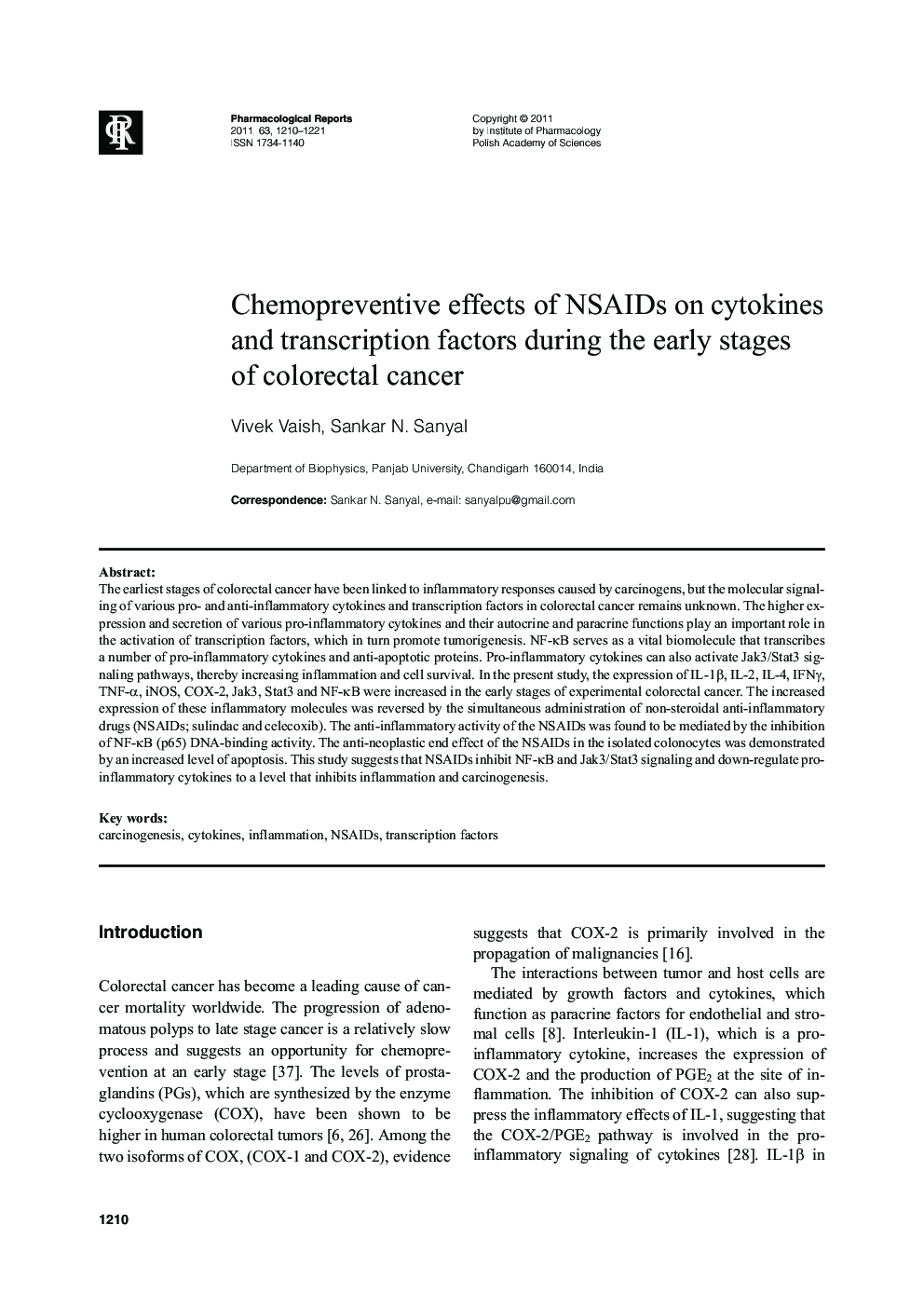| Article ID | Journal | Published Year | Pages | File Type |
|---|---|---|---|---|
| 2012449 | Pharmacological Reports | 2011 | 12 Pages |
The earliest stages of colorectal cancer have been linked to inflammatory responses caused by carcinogens, but the molecular signaling of various pro- and anti-inflammatory cytokines and transcription factors in colorectal cancer remains unknown. The higher expression and secretion of various pro-inflammatory cytokines and their autocrine and paracrine functions play an important role in the activation of transcription factors, which in turn promote tumorigenesis. NF-κB serves as a vital biomolecule that transcribes a number of pro-inflammatory cytokines and anti-apoptotic proteins. Pro-inflammatory cytokines can also activate Jak3/Stat3 signaling pathways, thereby increasing inflammation and cell survival. In the present study, the expression of IL-1β, IL-2, IL-4, IFNγ, TNF-α, iNOS, COX-2, Jak3, Stat3 and NF-κB were increased in the early stages of experimental colorectal cancer. The increased expression of these inflammatory molecules was reversed by the simultaneous administration of non-steroidal anti-inflammatory drugs (NSAIDs; sulindac and celecoxib). The anti-inflammatory activity of the NSAIDs was found to be mediated by the inhibition of NF-κB (p65) DNA-binding activity. The anti-neoplastic end effect of the NSAIDs in the isolated colonocytes was demonstrated by an increased level of apoptosis. This study suggests that NSAIDs inhibit NF-κB and Jak3/Stat3 signaling and down-regulate pro-inflammatory cytokines to a level that inhibits inflammation and carcinogenesis.
